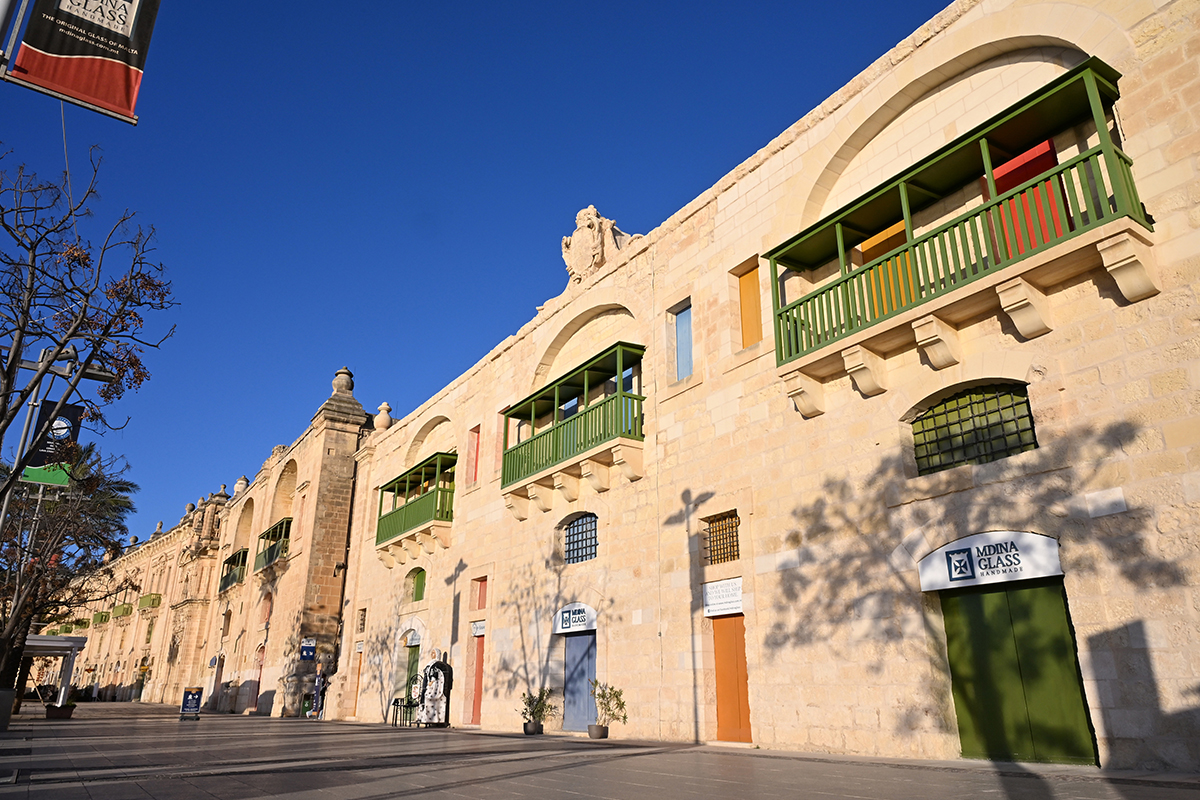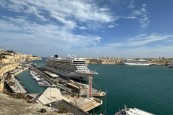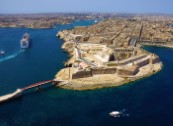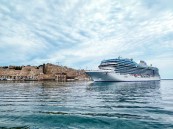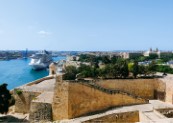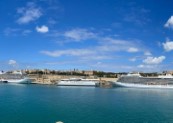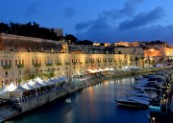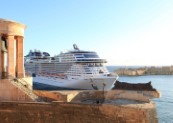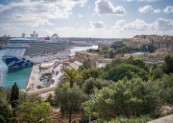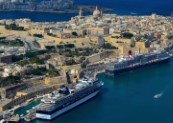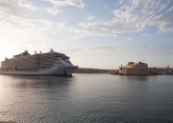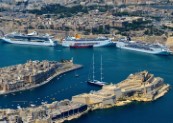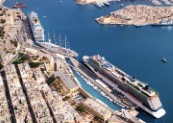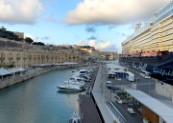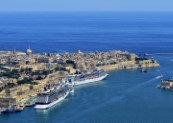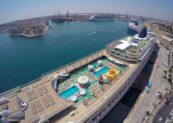Valletta Cruise Port, operators of the Valletta Waterfront have recently finalised the restoration of the historic Forni Stores.
The buildings referred to as Forni Stores consist of two separate blocks varying in size and proportion. The block closer to Pinto Stores is known as Forni 1 and was built in 1720, with the façade divided into two bays. The other block known as Forni 2 is composed of 3 bays and is older having been constructed in 1626. Although Forni Stores must have been originally constructed to provide storage facilities, these were in 1810, converted by the British Navy into a bakery. This was the first naval bakery that furnished the growing navy with ship biscuits. The dramatic increase in the size of the navy during the first half of the nineteenth century resulted however in the need for a larger bakery, specifically built to meet the required efficient rate of biscuit production, thus meaning that Forni Stores were otherwise used during more recent history.

With Valletta Waterfront located in Malta’s Grand Harbour and highly susceptible to the natural elements, great care is taken that the many features of these historical edifices are protected from elemental erosion.
Stephen Xuereb, CEO of Valletta Cruise Port and COO of Global Ports Holding commented, "Working on buildings of this age and cultural significance is an honour which however comes with a great responsibility. Valletta Cruise Port strives to bring the beauty of these buildings into the future, actively preserving our heritage whilst planning for our common future. It is vital to preserve Malta’s unique architectural heritage, especially through the conservation of our traditional landscape and local stone. Indeed, as operators of Valletta Cruise Port we constantly receive remarks from ship captains and crew that the sight of our historic port edifices glistening in the light of the Mediterranean sun is one of the most welcoming sights in any port worldwide. It is our prerogative to be curators of this parcel of land within our historic Grand Harbour and to sustain efforts to preserve it."

The Forni Stores restoration consisted of a very elaborate process ongoing over 11 months. This included carefully numbering each individual stone, followed by stone repair or replacement as required in the case of individual, badly deteriorated stones. Cleaning included the manual removal of accumulated dirt and dust mostly present on stones constructing the ledges or protruding parts of the building, as well as loose stone fragments.



